
![]()
The Department of Soft Skills Competency (DSSC) of Sungai Long Campus
organised yet another series of new and exciting programmes for UTAR
students
in the fourth quarter of the year 2021. Held in conjunction with
the “Experiential Week”, a
total of 25 workshops was organised for students
to keep them occupied while they were at home. The programmes took place from September 2021 to
mid-October 2021.
The purpose of the programme was to encourage students to participate in
virtual activities and enhance their soft skills.
Among the programmes organised were “Soft Skills Virtual Programme 5.0” and “Special
Camp”.
These programmes were conducted by UTAR lecturers along with some external trainers. Some of the sessions conducted during the programmes include “Understanding E-Commerce”, “The Art of Speaking English: Boosting learners’ Confidence and Developing Their Skills”, “The Power of Effective Time Management”, “How to be Fabulous: Lessons in being Cultured” and others. Approximately more than 1,300 students registered for the programmes which were conducted via Zoom, Webex and Microsoft Teams.
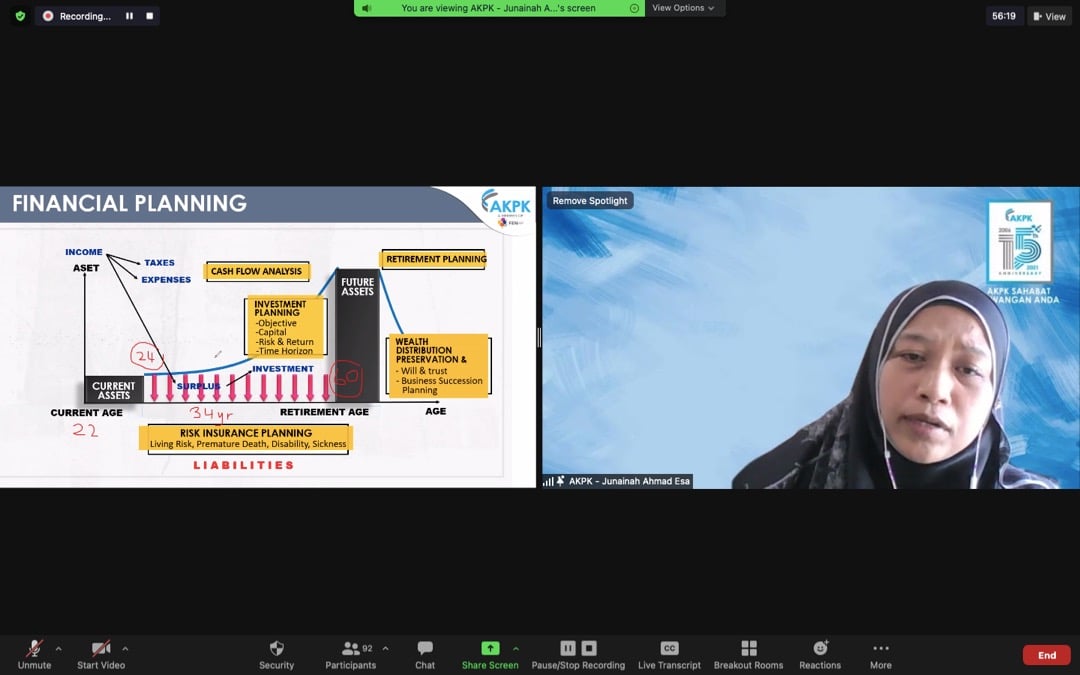
Junainah explaining the importance of financial planning
One of the
sessions saw Junainah
Ahmad Esa and
Tung Ka
Yin from
Agensi Kaunseling dan Pengurusan Kredit (AKPK) Kuala
Lumpur
giving talks
titled “Total Cost and
Benefits of Buying Car with Facility” and “Property as Main Investment Asset
Class” respectively. The talks aimed
to enhance students’ understanding of AKPK; provide ways to calculate debt;
tteach financial planning and its
importance and provide tips on purchasing a car.
According to the speakers, there are two financial factors to consider when one wishes to purchase an asset; affordability and loan eligibility. Affordability refers to cash flow, net worth positions and related costs. Loan eligibility, on the other hand, is debt to income ratio and credit history. Other factors include interest rates (fixed rate or floating rate), types of loans (term loan or flexi loan) and payment options (fixed payment or instalment payment).
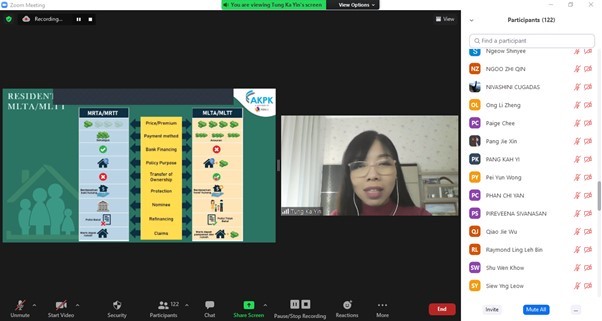
Tung during the “Property as Main Investment Asset Class” talk
Another interesting talk covered during the /span> SSoft Skills Virtual Programme 5.0 was “21st Century Learning Skills”. It was conducted by UTAR President Ir Prof Dr Ewe Hong Tat. The talk aimed to expose students to the importance of independent innovation in science and technology. In the talk, Prof Ewe mentioned that science and technology innovation ability has increasingly become a decisive factor in the competition for comprehensive national strength. In the face of fierce international competition, if the country cannot keep up with its independent innovation and blindly relies on technology introduction, it will be left behind in terms of technology. Prof Ewe also mentioned that in order to improve productivity rapidly and narrow the gap with the developed countries, the development of science and technology has to be increased.
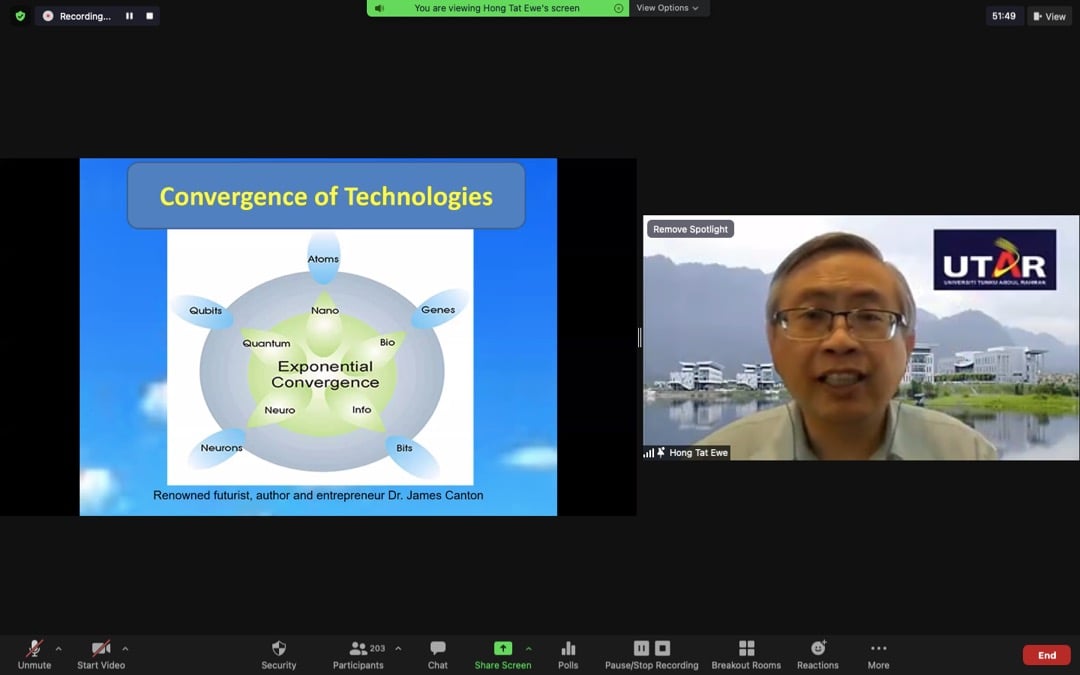
Prof Ewe conducting a talk on “21st Century Learning Skills”
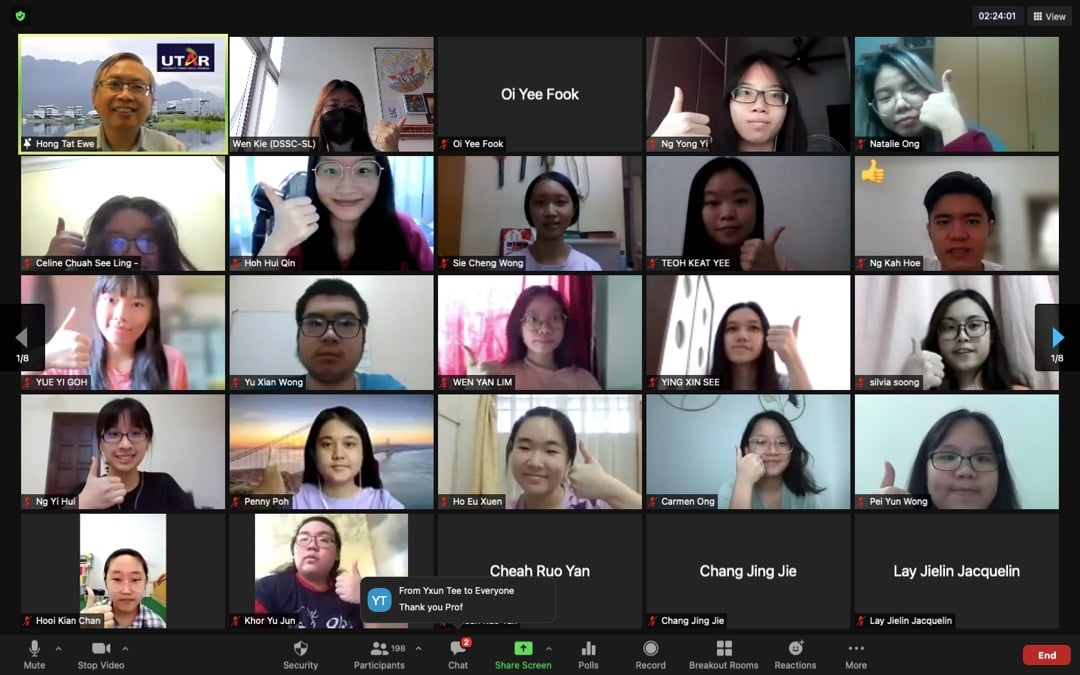
Prof Ewe (top row, most left) with participants
Centre for Foundation studies Senior lecturer /span>
Hoh Ming Chee
conducted a talk on “Fake
news#”. She explained that fake news is stories that are not true or
100% accurate. According to her,
there are seven types of fake news; satire or parody, false connection,
misleading content, false context, imposter content, manipulated content and
fabricated content. She also mentioned that one has to “CHECK”
iin order to identify and justify fake news. She then explained the
term “CHECK” which stood for “Check that it sounds right”, “Have a critical
mindset”, “Examine the evidence”, “Clarify who else is reporting the story”
and “Keep checking the source”. In today’s era, it is important for the
current generation to do some “research” before sharing news because it
might be misleading and could affect someone’s reputation.
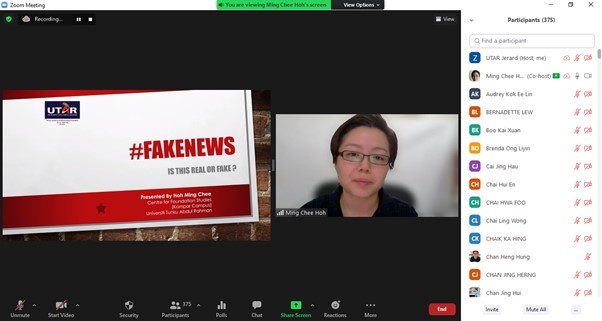
Hoh explaining the seven types of fake news
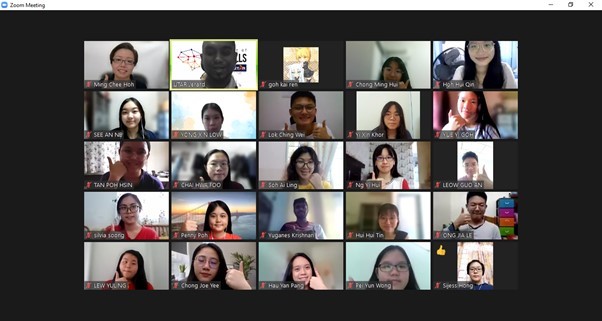
Hoh (top row, most left) with participants
UTAR had always played a contributing role towards the cross-sectoral
implementation of the Sustainable Development Goals (SDGs), providing an
invaluable source of expertise in R&D and education, while sharing
knowledge, and guiding students in advancing the SDG agenda and fulfilling
its own goals. UTAR has throughout the years spearheaded sustainable
initiatives which not only broadened the horizons of one generation but also
transformed their lives as well as that of the generations to come. These
programmes are connected to SDG 4, Quality Education as it ensures that all
participants acquire the knowledge and skills needed to promote sustainable
development through education.
Wholly owned by UTAR Education Foundation small>(200201010564(578227-M)) LEGAL STATEMENT TERM OF USAGE PRIVACY NOTICE